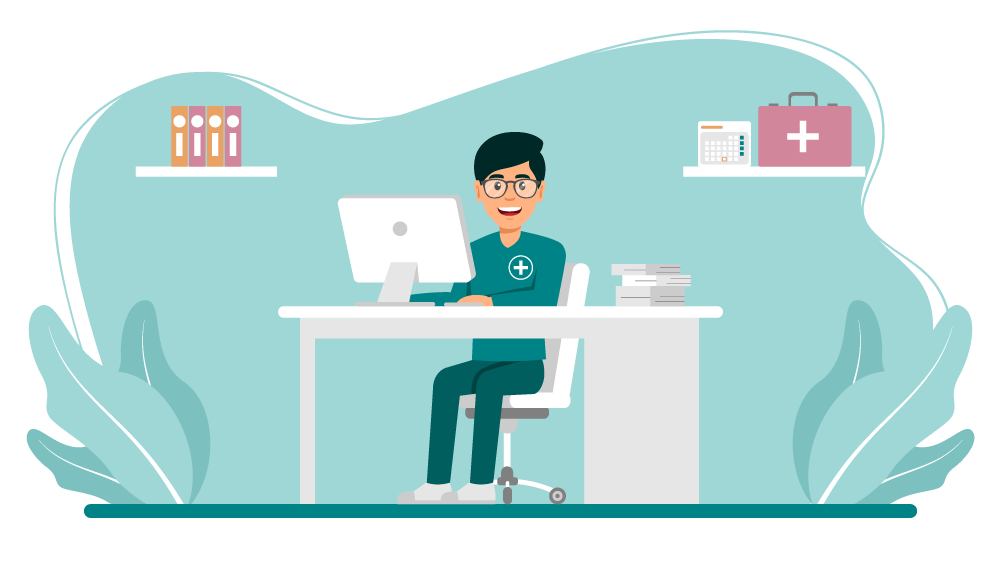Career Path
How Long Does It Take To Become A CPA?
If you intend to become a CPA and are enrolled in an accounting degree program, you should know how long it takes to become a CPA.
In the field of accounting, the Certified Public Accountant designation is highly esteemed. Being a CPA can help you progress your career and make it move rapidly if you want to provide assurance services, corporate management consulting services, international accounting services, financial planning, or tax services.
Prior to being eligible to sit for the standardized CPA exam, you must have completed a specified amount of academic coursework and gained practical accounting experience. Every state in the nation has the same qualifications to become a CPA.
Every state in the nation has the same qualifications to become a CPA. Continue reading to learn more about the degree you will require and how long you may anticipate spending in college.
Read Also: How Long Does It Take To Become An Anesthesiologist?
Who is a CPA?
The financial records of a division or organization are handled by certified public accountants (CPAs). They gather, examine, and verify financial data to ensure efficiency and compliance with federal and state standards.
Accountants produce written reports for their clients or the management of an organization. Accountants use their findings to advise management on improving operations, cutting expenses, and increasing profits.
CPAs might be asked to offer financial and investment advice and prepare tax returns for businesses and individuals. Anyone submitting a report to the Securities and Exchange Commission (SEC) must hold a CPA license. The majority of industries employ certified public accountants.
What is a CPA School Like?
A bachelor’s degree is often required for most accounting jobs. You might choose to enroll in classes that will aid you in achieving your goal of becoming a CPA while pursuing your degree.
You can anticipate that in a typical four-year accounting degree program, liberal arts courses will make up around half of the credits, and accounting-specific courses will make up the other half. These classes might cover the following topics:
- Spreadsheets
- Macroeconomics\sDatabases
- Statistics
- Critical thinking and Logical Skills
You should have the chance to finish an accounting internship near the end of your bachelor’s degree program. You will gain useful, hands-on experience in your chosen field as a result of this. Internships frequently result in jobs with salaries.
When you seek jobs in the future, your intern supervisor can serve as a valuable reference if they cannot offer you a position.
Before signing up for a degree program, consider how well it fits into your current schedule. Online learning is perfect if you are already employed full-time.
You may do this to accommodate your schedule and yet get the same quality education as those who attend classes on campus. You might consider taking both on-campus and online courses if your schedule is more flexible.
Finding a school that is sympathetic to your circumstances and open to making accommodations.
Read Also: How Long Does It Take To Become A Pt Assistant?
Is Attending a CPA School Worth it?
A master’s degree in accounting is valuable because it might give you the edge to land higher-level employment in banking, tax, insurance, or another financial-related industry.
You can learn the most recent technologies, improve your analytical abilities, and learn more about accounting principles. It could also be a significant step toward becoming a certified public accountant.
What Schooling Do I Need to Do to Become a CPA?
CPAs are eminent members of the accounting profession who are capable of applying the concepts and principles of accounting in a professional situation. You must finish your coursework and graduate from a reputable program to master the accounting curriculum.
Any approved accounting degree is valid if you complete the necessary number of credits and the right accounting courses, even though no degree programs are tailored particularly to CPAs.
Accounting majors have a few specialization choices. Some of these specialties have an accounting component. Others relate to coursework in a more broad sense.
As the prospective CPA enters the workforce, these specializations create a foundation that will be useful. Specialization enables an individual to enter a specific industry if that is what they wish to do.
Some areas of expertise include forensic accounting, nonprofit accounting and finance, environmental accounting, valuation, international accounting, estates and trusts, strategic communication, quality systems, supply chain management, personal financial planning, and more.
The majority of these specializations offer the accountant fulfilling and engaging employment. Some of them possess a special allure, like forensic accounting.
In this area of specialization, the accountant collaborates with agencies like local law enforcement or homeland security. The accountant’s forensic accounting expertise enables them to spot anomalies in a company’s bookkeeping. Typically, forensic accountants are employed by law enforcement’s white-collar crime units.
Another area of accounting that has grown in popularity recently is estates and trusts accounting. These experts advise clients on the best methods for distributing their fortune after death. This accountant will advise clients on selecting insurance plans and help with financial management.
They also aid their clients in avoiding various tax fines that may result from failing to take the right precautions throughout the financial planning phase.
Advanced tax research is another area of specialization for prospective CPAs. This enables students to comprehend more complex and advanced tax issues. A person with this training can interpret tax legislation.
Various CPAs will enter the management accounting field. Instead of working for an accounting company, these CPAs are employed by businesses or nonprofit organizations. They assume leadership positions inside the company and may eventually work their way up to the position of Chief Financial Officer.
Many degree programs will provide alternatives for specialization, such as the ones mentioned above, providing aspirants to the CPA designation the chance to enter professions that interest them.
Read More: How Long Does It Take To Become An Eagle Scout?
How Long Does it Take to Become a Licensed CPA?
Before taking the CPA exam, you might need to work for a specific number of months or years, depending on the state where you now reside.
While you are still in school, learn these crucial facts about a job in accounting. You don’t want to graduate under the misconception that you can immediately sit for the CPA exam.
You must request to take the Uniform Certified Public Accountant exam by contacting the National Association of State Boards of Accountancy after making sure you meet the qualifying conditions.
If you pass, your next step is to learn how many continuing education credits you need to earn annually to keep your CPA designation.
You must complete coursework and earn relevant work experience to become a CPA and obtain your license. You should anticipate devoting roughly 7 years to obtaining your CPA, regarding how long it will take.
There may be more or fewer criteria where you reside because each state has different requirements. The length of time you need may also change based on the volume of work you undertake.
For instance, if you only attend school part-time for a portion of your college career, you’ll need to adjust your anticipated timeframe and allow yourself a bit extra time to prepare.
How Much Does it Cost to be a Licensed CPA?
Depending on where you attend school, your bachelor’s degree will cost you a different amount. For the 2018–2019 academic year, an in-state student at a public institution paid an average of $10,230 in tuition and fees.
The price was $26,290 for an out-of-state student attending a public university. Private universities charge an average tuition of $35,830. Be sure to factor in the costs of room and board, books, transportation, and other expenses because they can double those sums.
A master’s degree program typically costs $8,850 in year tuition and fees at public institutions and $29,950 at private institutions. Both bachelor’s and master’s degree programs have online options.
Be aware that while you will undoubtedly benefit from the flexibility of scheduling lessons and the savings on transportation, tuition and fees may not necessarily be lower than what you would spend to attend classes in residence.
Students don’t always pay the “sticker price” to attend the institution or university of their choosing; it’s vital to remember this.
Private institutions provide financial aid programs that dramatically lower the amount of money students and their families must pay out of pocket. Speak with a financial aid specialist to learn about possible scholarships, grants, loans, and work-study opportunities.
Read More: How Long Does It Take To Become An Auto Mechanic?
Salary and Job Outlook for CPA After Study
The U.S. Bureau of Labor Statistics (BLS) compiles data for almost all civilian occupations and makes projections. The figures don’t fully explain the situation because some professions fit into general categories.
According to the BLS, the median annual salary for accountants and auditors is $69,350. (2017 figures). According to the median wage, half of the workforce makes more money than the other half.
CPAs have a higher earning potential due to their degree and experience. According to the Journal of Accountancy, the average CPA income in 2017 was $117,000, with wages ranging from $66,000 for a newly licensed CPA with less than a year of experience to $152,000 for a CPA with 20 or more years of experience.
According to the BLS, the job growth rate for accountants and auditors will be 10% from 2016 to 2026, which is faster than the average for all other occupations.
The employment of accounting professionals, especially CPAs, is correlated with the economy’s general health. The preparation and maintenance of financial records will require additional expertise due to low unemployment rates and ongoing commercial and industrial expansion.
Read More: How Long Does It Take To Become A Forensic Scientist?
Frequently Asked Questions
More than half of people who take the CPA Exam fail it the first time. The AICPA estimates that the pass percentage is 45–55% nationwide.
According to the AICPA’s cumulative pass rates for 2021, FAR had the lowest pass rate at 44.54%, and BEC had the greatest pass rate at 61.94%.
A CPA is regarded by the government as a credible accounting professional and is more qualified than an accountant to carry out some accounting tasks.
People with the CPA credential have undergone training in generally accepted accounting principles and best practices, including internet resources.
The average candidate may need 6–12 months to pass the CPA Exam. This might change depending on: how well-versed you are on the subject.
Within one to two years of receiving their CPA certification, accountants rise to roles with greater responsibility and are frequently promoted to senior-level positions within a few years. As soon as you pass the CPA exam, the effort you put in to prepare will be more than worth it.
Conclusion
Generally, you should budget for at least 7 years to become a CPA. Work schedules, family obligations, and the time required to complete your college degree are a few variables that may change this anticipated 7-year duration. In any event, investing the time now will pay dividends as you succeed in becoming a CPA.
References







